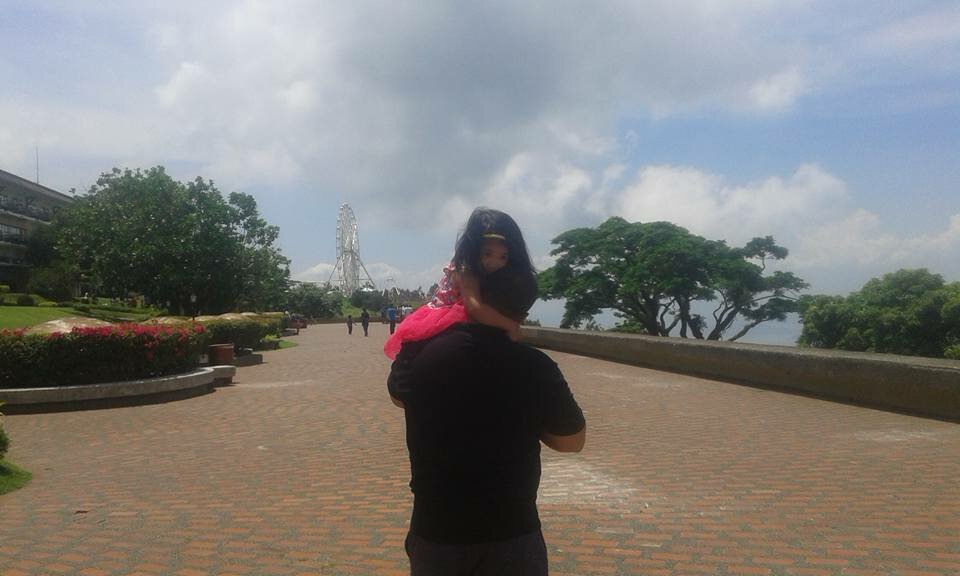I don’t know about you, but I love to travel. It could be because I was a “third culture kid,” having grown up in a different country as a child of OFWs. It could be because my parents used to bring me and my siblings on trips whenever they could, even as young children. Or maybe it’s because my husband and I (and our kids) used to travel a lot when we were still fulltime missionaries.
Whatever the case may be, the thought of travel always excites me. Of course, traveling with kids now is challenging and tiring, but we still do it whenever given the opportunity, like when we were blessed to visit Taal Vista Hotel in Tagaytay, or Pico de Loro in Batangas.
Yes, discovering new places is exciting but connecting with people is what makes traveling even more meaningful.
I remember how our kids would call the new people that they’d meet in new places their “new friends” — no shyness or shame at all! I am always fascinated by how young children can form friendships without any qualms, no matter what the background or culture their new friends are from — it’s amazing, really.
But as kids grow older, and turn into adults like us, this ease at forging relationships — at connecting with others — tends to be replaced by cynicism and distrust, or even fear. So how do we prevent this from happening, maybe not just to children but to us grown-ups too?
We use stories. Beautiful, powerful stories.
Just as my friend Jamie writes in her new book, Raising Globally-Minded Kids One Book at a Time:
Children don’t let the darkness of the world overshadow its beauty. They don’t make judgments. They just try to love—whatever and whoever stands in front of them.
You’ve seen this in your own littles, who live with awe and wonder as their daily companions—picking up a rock to examine, planting a kiss on the crease in your forehead, staring at a hawk overhead, beaming a sudden smile at a stranger.
And you know what? Almost always, the stranger smiles back. For a split second, our little one’s unconditional love brightens someone’s world.
Children start out this way, but often something happens.
We know, because it most likely happened to us, too.
Worries crowd out wonder.
Selfishness crowds out sacrifice.
Longing for more crowds out love for what is.
Problems crowd out people.
Knowing this, how can we strengthen our kids’ natural love for the world so it sticks around for the long haul? How can we grow it into their lifelong companion, one that leads them to care for others because of their deep passion for this planet and the people on it?
Thankfully, we have at our fingertips a miracle vaccine—one that can boost our immunity to the world’s distractions and heaviness. Story.
Well-chosen stories connect us with others, even those on the other side of our globe.
Build your kids’ lives on a story-solid foundation and you’ll give them armor to shield themselves from the world’s cynicism.
(You can read the entire thing — the first chapter of Jamie’s new book —
Instead of being a book about travelling to other places though, Give Your Child the World features amazing book lists that will “help moms and dads raise insightful, compassionate kids who fall in love with the world and are prepared to change it for good.”
I actually found myself in tears after reading the first chapter. Jamie’s beliefs and dreams for her kids — that they “have been chosen to lead their generation through its difficulties”, and that “with love, faith, and compassion firmly rooted in their spirits thanks to the power of story, they’ll be able to see the people beyond the headlines” — well, these are my beliefs and dreams too. This is what I hope for my kids — and not just my kids but for every young person out there.
So let’s do what we can to help our youth — and ourselves — connect with other people. Let’s do our part to build a nation, nay, a world, of globally-minded kids, starting with our own. (And getting a copy of Jamie’s book can certainly help us do so; which is why I’ve asked a friend in the U.S. to buy one for me; I could get it on Kindle but I prefer having a real book that I can touch and feel!)

Jamie, me and Baby Anne (who is not a baby anymore!), in 2013. Jamie describes part of her family’s visit to the Philippines in the first chapter of her book.
Dearest Jamie, thank you for writing this book! I am so honored to call you my friend. Thank you for allowing God to speak through your family and your experiences. May God continue to bless the work of your hands!




